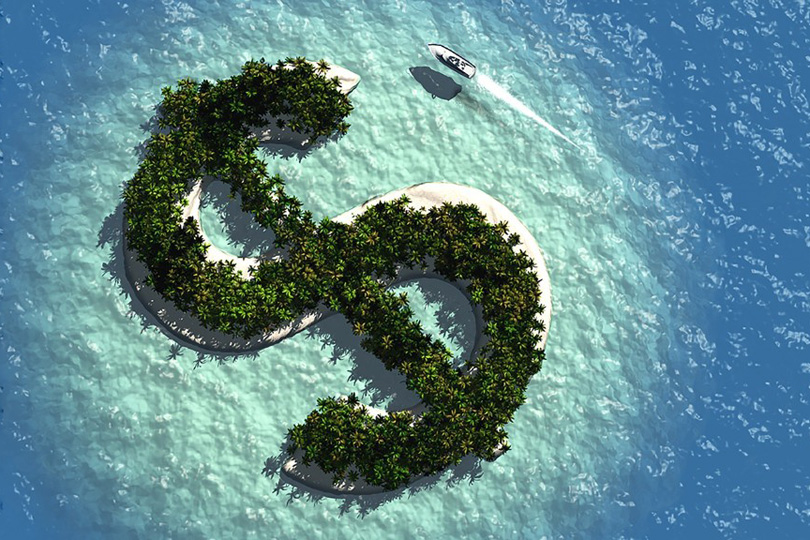A month after blacklisting 17 non-European Union countries as tax havens, EU finance ministers agreed on Tuesday to remove eight, including Tunisia and the United Arab Emirates, but won't say why they have come off the list.
Barbados, Grenada, South Korea, Macao, Mongolia, and Panama joined the two Middle Eastern countries as jurisdictions delisted "following commitments made at a high political level to remedy EU concerns," according to a statement from the ministers.
The blacklist - the first of its kind for the EU - was drawn up in December to discourage the most aggressive tax-dodging practices after major disclosures of off-shore schemes, most recently the Paradise Papers.
It has been criticised for failing to apply its criteria to EU countries which have some of the world's worst tax havens.
An Oxfam report released last November found that four EU countries - Ireland, Luxembourg, Malta and the Netherlands - would feature on the blacklist if the same standards were applied.
But the EU has also been praised for including more criteria than the Organisation for Economic Co-operation and Development (OECD) whose existing list of tax havens currently includes only Trinidad and Tobago.
The reasons why blacklisted countries made it on the list are detailed in a document released after the EU ministers adopted the list on 5 December 2017.
The UAE, according to the document, was faulted for not sharing tax information as required by the Organisation for Economic Co-operation and Development (OECD).
The document also notes that the country had not applied the minimum standards of BEPS, a global tax reform project launched in 2015 which ensures that companies are not shifting profits around the world to avoid or decrease their taxes.
Tunisia, according to the document, was listed for having "harmful preferential tax regimes" and not committing to fixing or getting rid of them by the end of 2018.
'The less we know'
Ministers said the delisting was a sign that the process was working as countries around the world were agreeing to adopt EU standards on tax transparency.
"Jurisdictions around the world have worked hard to make commitments to reform their tax policies. Our aim is to promote good tax governance globally," Goranov said.
But the detailed commitments which the countries made in order to be removed from the list have not been made public, despite calls to do so by EU tax commissioner Pierre Moscovici.
"So we know a little bit why they are not fully compliant, but we don’t know exactly what has to change," Aurore Chardonnet, EU policy advisor on inequality and tax for Oxfam, told Middle East Eye.
"We don’t know what kind of harmful tax practices was causing a problem in Tunisia for example."
Vladislav Goranov, finance minister of Bulgaria which holds the rotating EU presidency, said in a news conference after the meeting that commitments could not be disclosed without the permission of the countries who made them.
When asked why Tunisia and the UAE were delisted on Tuesday, a European Commission's press officer recommended that MEE contact the 28 EU members states whose finance ministers made the decision earlier in the day.
The member states would have had to decide unanimously in order to disclose those details and that wasn't the case, said Chardonnet.
She said she suspects that it was the EU countries who have tax havens themselves who would have pushed against the disclosure.
"The less we know, the less we can go back to them and say, 'Well, you asked this to Tunisia and why don’t you do the same?'" Chardonnet said.
“We would like to support the EU in what it is doing, but it’s always a disappointment when we see opacity around the process," she said. "This creates mistrust while, honestly, the process was more encouraging than the OECD one. For us, it's really a missed opportunity to do something good."
Nine jurisdictions remain on the blacklist. They are American Samoa, Bahrain, Guam, the Marshall Islands, Namibia, Palau, Saint Lucia, Samoa, and Trinidad and Tobago.
EU ministers avoided discussing possible sanctions for jurisdictions who remain on the blacklist.
The eight delisted jurisdictions have been moved to a so-called grey list, which includes other 47 jurisdictions that have committed to changing their tax rules to abide by EU standards on transparency and cooperation.
Countries on the grey list can be moved back to the blacklist if they fail to respect their engagements.







Comments